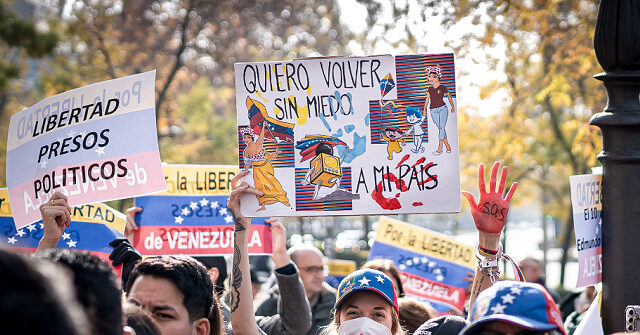In a harrowing account shared with the BBC, a 20-year political prisoner in Venezuela, known as “Juan,” exposed the brutal conditions of his imprisonment under the socialist regime of Nicolás Maduro. Following the contested presidential election on July 28, which Maduro claims he won, countless individuals faced arbitrary detainment in a crackdown led by the regime against dissenters. According to non-governmental organizations like Foro Penal, this crackdown resulted in at least 27 fatalities and over 2,400 arrests, of which around 1,800 have been documented. Many of those detained included children and were charged with terrorism and other offenses merely for opposing the fraudulent electoral results. Juan’s experience provides a visceral insight into the regime’s tactics to stifle opposition and the human rights violations prevalent in Venezuelan prisons.
Juan recounted his time in custody, describing systematic physical and psychological torture at the hands of authorities. He detailed being routinely beaten, deprived of food, and subjected to suffocation in a designated torture chamber. These brutal methods reflect the regime’s broader strategy to maintain control through fear and intimidation. The Maduro administration has designed specific tactics, such as utilizing state smartphone applications to track dissidents and conduct abductions, further exemplifying the lengths to which the regime will go to silence opposition. Juan’s story of being intercepted while running an errand reveals how ordinary citizens became victims of a politicized system determined to crush all dissent, as he was wrongfully accused of terrorism without any evidence.
His detention led him to Tocorón prison, notorious for its inhumane conditions. Inside, he survived in a cramped cell designed for six people, with bare basics for hygiene and privacy. The psychological torment of his captivity was exacerbated by the lack of timekeeping, forcing him to count the hours by observing sunlight through a small window. This environment fostered despair among his fellow inmates, many of whom experienced mental deterioration under the oppressive conditions. Juan’s vivid recollection of life in the prison, equating it to a concentration camp reminiscent of historical atrocities, underscores the severity of human rights abuses occurring in Venezuela.
Tocorón prison is reported to have dedicated punishment cells for inmates who resist or voice political opinions, exposing the policy of repression that governs the regime’s handling of dissent. Juan described being placed in one of these dark punishment cells, where he endured extreme hunger and deprivation of basic human needs. The isolation and inhumane treatment, designed to break the spirits of inmates, demonstrate the extent of the regime’s cruel methodologies. Furthermore, he recalled the harrowing experience of being subjected to suffocation in a specific torture chamber named “Adolfo’s bed,” indicating a systematic approach to torture that goes beyond individual incidents.
The daily routine in Tocorón was governed by violence and degradation, with inmates surviving on expired food and receiving minimal care. Juan characterized the environment as one of squalor, highlighting how many detainees had become emotionally numb and lost the will to live. The degradation of dignity and respect for basic human rights was prevalent, forcing inmates into a state of survival fraught with psychological trauma. Juan’s testimony sheds light on the collective suffering experienced by countless political prisoners, questioning the moral integrity of a regime that resorts to such inhumane practices to quell dissent.
Recently released in November, Juan now faces ongoing scrutiny from the regime, being required to report to a terrorism court every month. His father expressed deep concern for Juan’s safety in a regime that continues to target dissenters. The system of fear established by Maduro remains pervasive, impacting not only the individuals detained but their families and communities. As Juan looks towards the future, he is acutely aware of the scars his experience has left on him, both physically and mentally. His story is a chilling reminder of the human costs of authoritarian rule in Venezuela, igniting conversations about accountability and the need for support and advocacy for those still enduring the brutality of the state.

